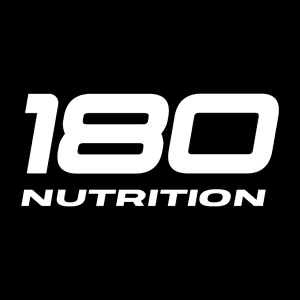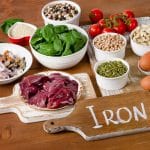180 Nutrition: You’re following your nutrition plan to the letter, you’re working out as directed, yet the scales just aren’t dropping the digits. Sound familiar?
If so, before you get defeated and go back to the couch and biscuits, ask yourself this question: Are You Getting Enough Sleep?
By enough sleep, I don’t mean crashing for a few hours after getting stuck in a Netflix loop. I mean a minimum of 7.5 hours of quality, uninterrupted shut-eye a night. If the answer is NO, it could be chasing those elusive Zzz’s that is causing your stubborn flabby midriff and, if you’re not following a balanced diet and exercise plan, weight GAIN.
We Love Our Sleep
We love our sleep not just because it makes us feel fresh and ready to take on whatever the day is about to throw at us; we love it because we know the science behind why we NEED good sleep and how it contributes to our weight-related goals.
The Science
OK shut your eyes and put yourself back into high school science for a second. I’m not going to get too technical here, but there is a bit of biology at work in your body that you need to know about. The human body produces hormones, and there are two of them whose function you need to understand because their levels have a direct impact on the scales:
- Leptin
Leptin is the all-important hormone that lets your brain know that you’re full up. Leptin is your friend. It’s created in your fat cells while you eat, and it travels to your brain via your bloodstream to let it know that you’ve got enough energy now, and it’s time to stop eating. Not only is leptin produced while you eat, but also while you sleep.While your body is at rest, Leptin is being produced and working away to let your brain know that you have all the energy your snoozing body requires and that you don’t need to eat any more. Without that solid sleep, Leptin levels fall which tricks your brain into thinking that it’s snack time. It makes you think that you’re lacking in energy and that you need to eat something to counteract this. Lack of leptin also slows down your metabolism so your body desperately tries to cling onto all the calories possible to give you the energy it thinks you need to function. - Ghrelin
Ghrelin has the reverse function to Leptin. It tells your brain when you’re hungry and is the hormone that causes those late afternoon stomach growls when the rest of the world seems to be silent! While Leptin is getting busy as you’re asleep; it’s at this time that Ghrelin production has a rest, and your levels remain low.Without a good night’s sleep, Ghrelin production goes into overdrive which results in your brain telling your body that you’re hungry; this can potentially put your body into a state of starvation, when in fact, you don’t need to eat a single morsel. Leptin and Ghrelin affect weight loss in opposite ways, but the quality of your sleep impacts the production of both, and therefore your weight-loss results.
And that’s not all that goes on while you sleep…
REM
REM stands for Rapid Eye Movement and is the time where your body is in its deepest sleep. REM can last between ten minutes and an hour, up to five times a night. It is during REM that the most calories are burned in your body as your brain is equalling or exceeding the amount of energy used while you’re awake. You’ll know when it’s happening; it’s when you have those vivid dreams, and your eyelid twitching goes into overdrive!
Without a long, deep sleep, your body doesn’t fall into a state of REM so your calorie count stays the same. Sleeping to burn calories… seriously, where do we sign?
The Natural Response
Just one night of bad sleep can put your fat-busting hormones out of whack, but if you multiply this by an ongoing disrupted sleep pattern, you can see how easy it is to get into a cycle of your body thinking it’s hungry when it’s not. That’s when you get into a habit of overeating just to survive.
Now this wouldn’t be so much of a problem if, when you felt hungry you ate something packed with nutrients and low in sugar (like a whole food breakfast smoothie instead of a bowl of Cheerios), but this is rarely the case. Combined with the foggy head that you get from lack of sleep; the imbalance of hormones leads your body to crave high sugar and high carb foods. You end up reaching for the biscuits, the processed snacks or anything which is going to get you through the afternoon, and you’re packing on the kilos before you know it.
The Solution
It seems ironic to think that you can be lazy about going to sleep but with increasingly busy lifestyles, that’s the case for many. If you’ve gotten out of a good sleeping routine, it’s time to put it back into place. This could be as easy for some as making a conscious effort to go to bed earlier and creating habits which allow you to get at least 7.5 hours of uninterrupted sleep a night.
For you, if this is easier said than done, check out our blog on how to get the best sleep ever. If you’re still having problems sleeping, arm yourself with nutrient-rich snacks such as nuts, carrots, hummus, protein-based snacks, and natural foods to combat the cravings at those unwanted snack times. Don’t give in to the sugar and caffeine cravings because once your body knows it’s not going to be rewarded with the sugary processed energy boosters that it’s asking you for; it will tire more easily, and you’ll start to see those unwanted kilos drop off.
Sleep is as important to weight loss as diet and exercise; make every effort you can to get in a good night’s sleep. It’s not called beauty sleep for nothing 🙂 Who knew resting could be so beneficial?
Click here for protein-based snack recipes







